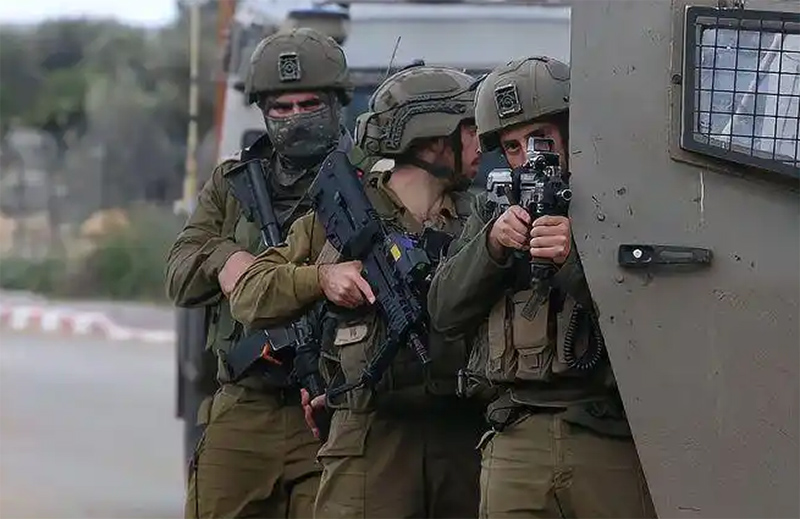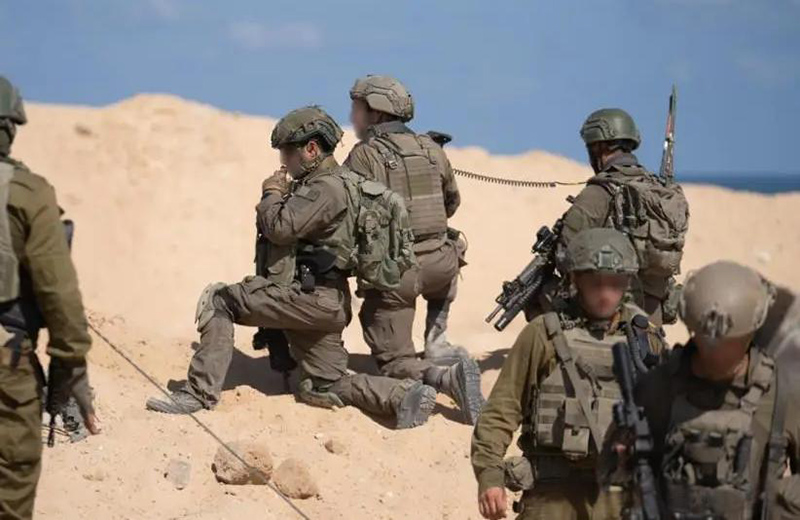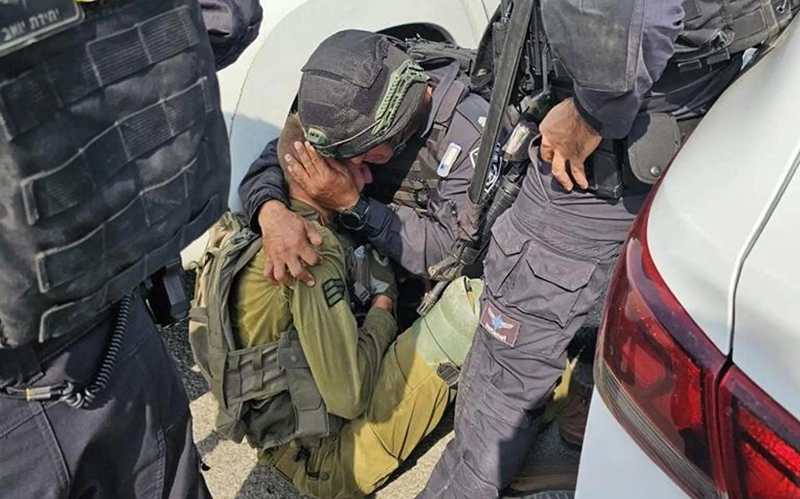1,000+ Soldiers Mentally Discharged
According to the latest internal military data obtained exclusively by the Walla News Channel, since the escalation of the Israeli-Palestinian conflict in October 2023, the number of Israel Defense Forces (IDF) personnel forced to retire due to post-traumatic stress disorder (PTSD) has exceeded 1,100. The statistical report, marked “confidential,” details that between October 2023 and July 2024, a total of 1,135 active-duty soldiers, reservists, and career soldiers were permanently removed from frontline combat, tactical support, and logistics positions due to severe combat-related psychological trauma. Notably, approximately 68% of these cases involved combatants who had directly participated in ground engagements.
As the Israeli military recently intensified preparations for a large-scale clearance operation against Gaza City, coupled with the ongoing nationwide reserve mobilization, several unnamed theater commanders have revealed to the media that the mental health of their troops is showing a “systematic deterioration.” In one mechanized infantry brigade in the Southern Military District, an entire platoon of soldiers was temporarily withdrawn from combat due to collective trauma symptoms. To address this crisis, the Israel Defense Forces’ Medical Corps and the Directorate of Scientific and Technical Logistics have urgently launched the “Iron Dome Psychological Shield” program, expanding the coverage of battlefield psychological services to all combat units. The latest assessment reviewed by Defense Minister Israel Katz shows that, through immediate treatment by the battlefield psychological intervention team, approximately 85% of soldiers experiencing acute stress disorder can regain basic combat capabilities and return to duty within 72 hours.
The Cultural Barrier to Help
“The most devastating complication of PTSD is the stigma it carries,” admitted a reserve major, known only as “R,” in an interview. This officer, who has participated in the continuous urban fighting in northern Gaza since the October 7th Incident, described: “From privates to brigade commanders, everyone experiences nightmares, flashbacks, and emotional breakdowns to varying degrees. However, most prefer to grit their teeth and endure rather than seek medical attention, fearing that a medical record could affect their promotion or even end their military careers. This psychological pressure exists not only within the military but also reflects a broader societal cognitive problem.” His combat log records that at least 12 soldiers in his armored battalion refused psychological evaluations despite exhibiting obvious symptoms of trauma.

In response to this situation, over 20 active-duty military officers jointly called on the Ministry of Defense to establish a “de-stigmatizing” psychological support network. Brigadier General Doron Almog, Director of the Mental Health Division at the Ground Forces Command, stated that the military has upgraded its service system from prevention to intervention to rehabilitation. “The neurofeedback therapy device we developed can provide diagnosis and treatment at frontline outposts,” he explained, “but the real challenge is convincing those soldiers still holding their ground under fire that seeking help is a sign of courage, not weakness. This requires a shift in societal cultural attitudes.”
A Sharp Spike in Suicides
Since the outbreak of the conflict, Israel has implemented many innovative psychological interventions across its military. Among them is the “Tal Azumot” Combat Trauma Rehabilitation Center, with branches at six military bases, including Beersheba, equipped with VR exposure therapy equipment and a certified service dog training program. The “Lifeline,” a 24-hour psychological support hotline operated throughout the military, has seen its average daily call volume surge from 47 before the war to 583. For retired soldiers, the Ministry of Defense has established a “Brother Support Group” composed of veterans, providing long-term companionship through a peer-to-peer mentoring model.
More systematic reforms are underway. According to the Ministry of Defense’s General Logistics Directorate, the expanding Combat Stress Response Unit will not only add mobile medical treatment vehicles to the Northern Military District near the Lebanese border and the Southern Military District surrounding Gaza, but also plans to establish the nation’s first comprehensive service center for professional military families in Tel Aviv. The center will integrate diverse services such as psychological counseling, marriage counseling, and child education, and is expected to be operational in the first quarter of 2025.

This invisible mental health crisis is evolving into a national security challenge. Comparative data obtained by the Jerusalem Post shows that the annual number of psychological counseling visits for reservists has soared from 270 before the war to over 3,000. Colonel Ilan Hitrit, head of the Mental Health Command, explained, “The surge reflects both the escalating brutality of modern warfare and the erosion of the stigma against seeking help, which we spent a decade to break.”
However, a worrying trend is that this rise in requests for help is accompanied by a sharp increase in suicides. The 2024 annual report of the General Directorate of Military Personnel shows that 21 active-duty personnel have committed suicide this year, 14 of whom were reservists returning from combat missions. Particularly distressing is the case of 28-year-old Reconnaissance Sergeant Daniel Ederi. Despite being assessed as “high risk” for PTSD after three battles in Gaza, he was unable to receive timely treatment due to bureaucratic delays, ultimately taking his own life during Passover this year. This incident caused a strong response in the whole society and prompted the Knesset’s Defense Committee to launch an emergency inquiry.
Overhaul: From Rapid Care to Reform
To fundamentally restructure the mental health care system, the Israeli government last month established an interdepartmental special committee, chaired by retired Major General Moti Almoz. This team, comprised of military medical experts, neuroscientists, and veterans’ lawyers, is primarily focused on streamlining the disability assessment process for post-traumatic stress disorder. According to sources familiar with the matter, the draft regulations propose shortening the assessment period from the current 90 days to 21 and allowing video consultations to be used as official medical records. In terms of front-line response, the Israeli military medical forces have implemented a “Golden 24 Hours” plan, whereby any soldier experiencing persistent panic attacks, dissociative disorders or suicidal thoughts can receive a consultation with a psychiatrist within one day.












